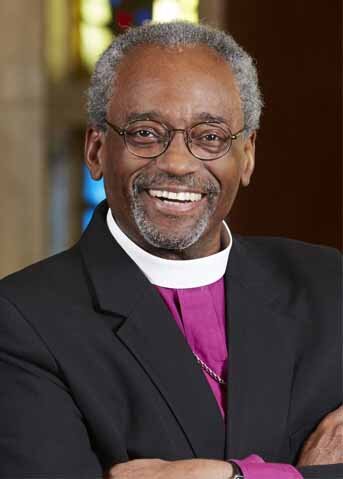By Louise Sisson
The Highlands were blessed to have Dr. Steve McEvoy visit area churches and teach on fulfilling the Great Commission. He was brought to Haliburton by Sandy Stevens of Put the Word into Action Ministries , a local charity aiming to strengthen and encourage the Body of Christ.
Steve pastored Shepherd’s Heart Prayer Centre in Truro, Nova Scotia for 13 years and now heads up Steve McEvoy Ministries. He also teaches leadership skills to both government agencies and the business community. His seminars are totally scripture-based, even though he cannot use the Bible as a reference in business settings. If you ever get a chance to attend one of his workshops/seminars, I would encourage you to do so.
St. George’s, Lighthouse Pentecostal and Lakeside Baptist churches partnered with Put the Word into Action for various of the seminars, and members of all local churches were invited and encouraged to attend. Although I had been a Christian for many years, Steve took passage after passage of scripture and opened them up to a whole new dimension. For me, it was a life-changing revelation.
The first seminar held at St. George’s (Standing Close to God) emphasized that Jesus did everything required so we can enjoy a relationship with God. He always stands between us and God so that God does not see us as sinful. When I sin, which I will do, it is my responsibility to stand back up, turn to God and receive the forgiveness He offers. This is a new day in my walk with God. We are worthy!
In the next seminar (Walking by Faith), Steve emphasized the fact that faith was given to us by God and only grows as we grow as Christians. How do we grow in faith? By hearing! How do we hear? Through reading the Word! The development of faith is like a newly-developed muscle; at times it will be uncomfortable. God will sometimes lead us into situations beyond our present place of faith, causing us to turn more intensely into the face of God and forcing our faith to grow. Will we stay where we are or will we allow God to lead us forward? The choice is ours!
The third seminar (Running by God’s Strength) spoke to me in two different ways. Firstly, when God created the earth and all that was in it, He gave immense responsibility to humans—similar to when you give someone a gift, you hand over the accountability for the gift to the recipient. Humanity, through choice, relinquished responsibility to the prince of darkness, and so opened the door and allowed evil to come in. So while we sit waiting on God to do something about the state of the world, God waits for US to take our part and do something about it.
Secondly, as we read in John 17:4, Jesus prayed on the mountain before he went to the cross, saying, “Father, I have finished the work that you sent me to do." FINISHED! COMPLETED! There was a work that was finished before he went to the cross. That work was ‘making disciples’ so that what he started here on earth could continue after he opened the other door allowing redemption for humanity.
Each one of us has been equipped and empowered to work as the Lord’s disciples. I asked myself and the congregation, “Before we walk through that door, have we finished the work that He sent us to do?” I challenged the congregation to help raise up the warriors to fight this battle, starting with our children and young people. Although many of us are seniors, we can put new meaning to the word ‘Gray Power’ if we step out of our comfort zone—in faith!
















